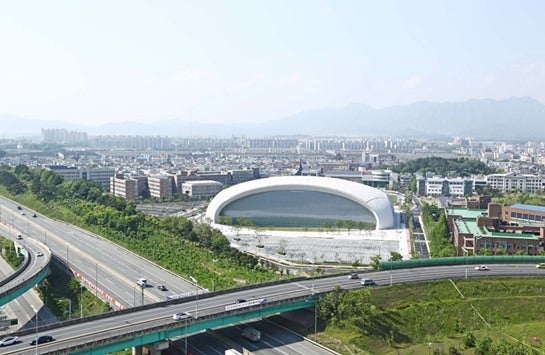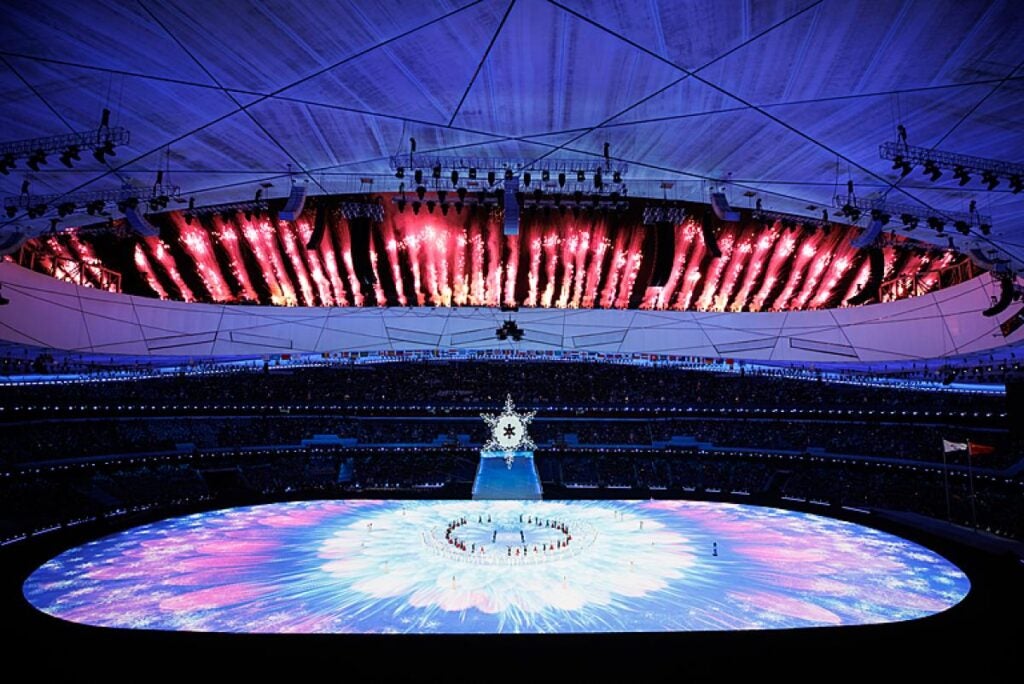
In May 1980, peaceful demonstrations in Gwangju, South Korea
against Chun Doo-hwan, leader of a military coup in South Korea, provoked a
brutal crackdown by military forces, leading local people, many of them
students, to take part in the May 18 Democratic Uprising.
The uprising was eventually suppressed after nine days, but
only at the cost of about 600 deaths, most of them civilians. After civilian
rule was reinstated in 1987, a national cemetery was established honouring the
victims of the incident.
That incident still looms large in the public consciousness of the city in the south of Korea, leading it to adopt the slogan ‘Dive into Peace’ for next year’s FINA World Aquatics Championships, which the city is hosting.
At a reception for international media to promote the city’s plans for the championships, held days before the start of the PyeongChang 2018 winter Olympic Games, Yoon Jang-hyun, mayor of Gwangju, tells Sportcal Insight: “We’ve hosted the Fifa World Cup [Gwangju was one of the venues for the 2002 World Cup hosted jointly by Japan and Korea] and the Universiade [in 2015] and gained a lot of exposure as a site of democracy and peace.

“Sport gives a positive image of Gwangju. Through the FINA World Championships, we will gain more than 10 million views through television and Gwangju will be known as a city of industry and culture.”
The aim, the mayor says, is for the championships to “reflect a bigger ambition and ultimately be more special and meaningful.” The ‘Dive into Peace’ slogan, organisers say, “shows Gwangju’s engagement in creating a unifying Championships that promotes positive values around the world.”
How well do you really know your competitors?
Access the most comprehensive Company Profiles on the market, powered by GlobalData. Save hours of research. Gain competitive edge.

Thank you!
Your download email will arrive shortly
Not ready to buy yet? Download a free sample
We are confident about the unique quality of our Company Profiles. However, we want you to make the most beneficial decision for your business, so we offer a free sample that you can download by submitting the below form
By GlobalDataThese are lofty ambitions for a sporting event, and the budget, split equally between local and national governments and the organising committee, reflects that: a total of $161.7 million – which is nevertheless insufficient, according to the mayor, who says he is lobbying FINA, aquatics’ world governing body, to spend Won25 billion ($23 million) more.
The budget does not include the cost of an athletes’ village, which is being privately funded (albeit the organising committee must pay six months of rental costs). The operational budget is $110.7 million, with $51 million for facilities.

The infrastructure legacy of the 2015 Universaide means that spending on facilities is “minimised,” according to Cho Young-teck, secretary general of the Gwangju 2019 organising committee, who added that hosting the games should serve to raise the profile of the city on the international stage and hence trigger fresh investment in the city.
The organising committee plans to fund its share of the
costs in part through sponsorship, with Samsung, Kia Motors and Korea Electric
Power Corporation, which all have a major presence in the city, among its prime
targets. Cho said that organisers were waiting until the conclusion of the
PyeongChang games to begin their sponsorship drive.
About 30 per cent of the city’s population are students (the city is home to three public and seven private universities) and the championships will be centred on the Aquatics Centre at the city’s Nambu University, which like many of the other facilities was built for the Universiade.
The Aquatics Centre has 3,290 seats but will be enlarged to
11,000 with the addition of a new temporary stand. The open water swimming competition
will take place at Jangseong Lake, where 2,000 seats will be established.
Three temporary facilities for synchronised swimming, water
polo and high diving will be installed at Gwangju Yeomju Stadium, Jinwol
International Tennis Court and the City Hall Culture Square of Gwangju.
By holding the championships, we will invite international guest visitors who can exchange with local people, and increase productivity and job opportunities
With two professional teams, baseball’s Kia Tigers and soccer’s Gwangju FC, the aim of hosting the championships is to raise further Gwangju’s profile as “the sport city of Korea,” according to Cho, who said that the event “contributes to displaying the brand of the city to the world. It’s part of realising the ideal of the city. By holding the championships, we will invite international guest visitors who can exchange with local people, and increase productivity and job opportunities.”
The financing of the games caused initial controversy after
the Korean government decided to retract its offer of financial support in 2013
as a punishment for Kang Un-tae, the city’s mayor at the time, having allegedly
forged signatures of former prime minister Kim Hwang-sik and former culture
minister Choe Kwang-sik in the bid document submitted to FINA included
financial guarantees from the government for the championships.
The Korean government ordered an investigation into the
forgery allegations, and promised strict actions against anyone found guilty.
Kang apologised for the scandal but proclaimed his
innocence, indicating that “a mistake by an official led to the signatures on
the government guarantee and contents to be altered.”
Noh Tae-gang, director of the sports bureau within Korea’s
minister for culture, sports and tourism, said at the time that officials in
Gwangju might have been carried away by their desire to host the swimming
championships, noting that some local governments had tried to host events
beyond their capabilities in the past.
He explained: “Local governments have at times put an undue
amount of financial burden on the central government events. We will have
strict reviews on prospective hosts to make sure they have the means and
financial capabilities to actually stage competitions.
“The central government should only step in when the local
governments are unable to meet their financial commitments. That’s how things
will normally work. From now on, we will make sure our local governments have
what it takes to handle international events.”
The 18th FINA World Aquatics Championships will take place in Gwangju from July 12 to August 11, 2019, featuring both the FINA World Championships and the World Masters Championships.




